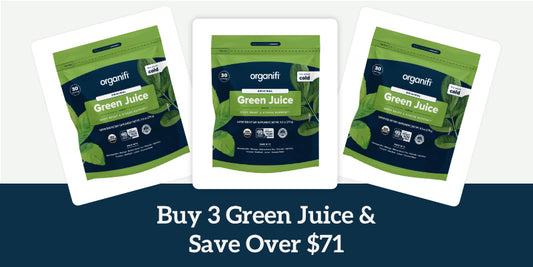Written by: Drew Canole
The supplement industry can be a confusing one to navigate with so many options lining store shelves. It is estimated that Americans spend over $17 billion a year on health and wellness supplements and yet rates of disease have remained the same or in some cases, they’ve even increased.
It may be easy to feel like you are getting your dose of vitamins and minerals every morning when you pop your multivitamin, but how do you know if it is actually giving you what it promises on the label?
In many cases, people are taking upwards of 10+ different supplements a day, but can’t tell you if any of them are making a big impact on their health.
And why would you take something if you didn’t KNOW it was benefiting you in some way?
How To Choose Effective Supplements
Most supplements can be divided into two categories: synthetic supplements and whole food supplements.
Synthetic Supplements And Isolated Nutritional Supplements
Synthetic or isolated nutrients are not natural. These are usually high-dose vitamins and minerals that resemble drugs more than actual vitamins. You would be hard pressed to find a fruit or vegetable that contains 5,000 milligrams of ascorbic acid, for instance, like you find on shelves at the grocery store.
With synthetic supplements there is a myth that MORE is BETTER. People believe that if beta-carotene is good for your eyes, then a LOT of it must be even better for your eyes. Unfortunately, this is just not how mother nature operates.
Judith DeCava CNC, LNC writes in her book The Real Truth About Vitamins And Antioxidants:
“Vitamins are part of food complexes and must be associated with their natural synergists (co-workers) to be properly utilized and be a potent nutritional factor. In other words, a minute amount of a vitamin that is left intact in its whole food form is tremendously more functional, powerful and effective nutritionally than a large amount of a chemically pure, vitamin fraction.”
Bottom line: synthetic supplements are man-made, not nature made.
Because these vitamins and minerals are isolated, manufacturers use yucky solvents and other chemicals to put them together.
What’s more, these supplements are missing their partners (vitamin fractions, enzymes, coenzymes, trace elements, etc.) that are responsible for helping them accomplish their roles in the body.
Isolated and synthetic supplements are not only ineffective, but they have also been found to be detrimental to long-term health and cause severe deficiencies when taken consistently over time.
Whole Food Supplements
Whole food supplements are vitamins, minerals, etc. that are made from concentrated whole foods. These are not isolated vitamins, they are complex structures that contain a variety of factors that work together to enable any said vitamin to do its job correctly in your body.
Think of it this way: when you eat a food, you are eating a combination of vitamins, minerals, enzymes, coenzymes, antioxidants, trace elements, activators, etc. all together. These are perfectly designed by nature to perform a certain way when digested by the body.
They work SYNCHRONISTICALLY.
A single carrot has been found by scientists to contain over 200 nutrients and phytonutrients. These all work together and need each other to be properly absorbed and used in the body.
T. Colin Campbell talks about this concept is his book Whole: Rethinking The Science Of Nutrition:
“They found that 100 grams of fresh apples (about four ounces, or half a cup) had an antioxidant, vitamin C-like activity equivalent to 1,500 milligrams of vitamin C (about three times the amount of a typical vitamin C supplement)... The vitamin C-like activity from 100 grams of whole apple was an astounding 263 times as potent as the same amount of the isolated chemical!”
Put simply, vitamins and minerals in their WHOLE FOOD form are 263 times MORE POTENT than an isolated vitamin or mineral!
Dr. Mercola states as follows:
“Nutrients from within this complex cannot be taken apart or isolated from the whole, and then be expected to do the same job in the body as the whole complex is designed to do.”
Vitamins and other nutrients work like complex machinery. You can’t take the car engine and expect it to run without wheels or other parts. You can’t take batteries and expect them to take pictures without a camera and lense.
Moral of the story - not all supplements are created equally. When you are purchasing a supplement make sure of the following:
- It is made from concentrated whole foods
- It is as close to its natural form as possible
- It is free of allergens, like gluten and soy
- It is preferably vegan
- It makes a difference! If you take it for 1-2 weeks and notice nothing, it might be time to switch to a different brand
Did you know our new Organifi Complete Protein doubles as a multivitamin? Check out the details here.
Good luck!

About The Author
Drew Canole is a rockstar in the world of fitness, nutrition and mindset, with a huge heart for others and doing his part to transform the world, one person at a time.
As the founder and CEO of Fitlife.TV, he is committed to sharing educational, inspirational and entertaining videos and articles about health, fitness, healing and longevity. He is also a best selling author and the founder of Organifi, an organic, incredibly delicious greens powder, chock-full of superfoods to make juicing easy no matter your busy schedule.




